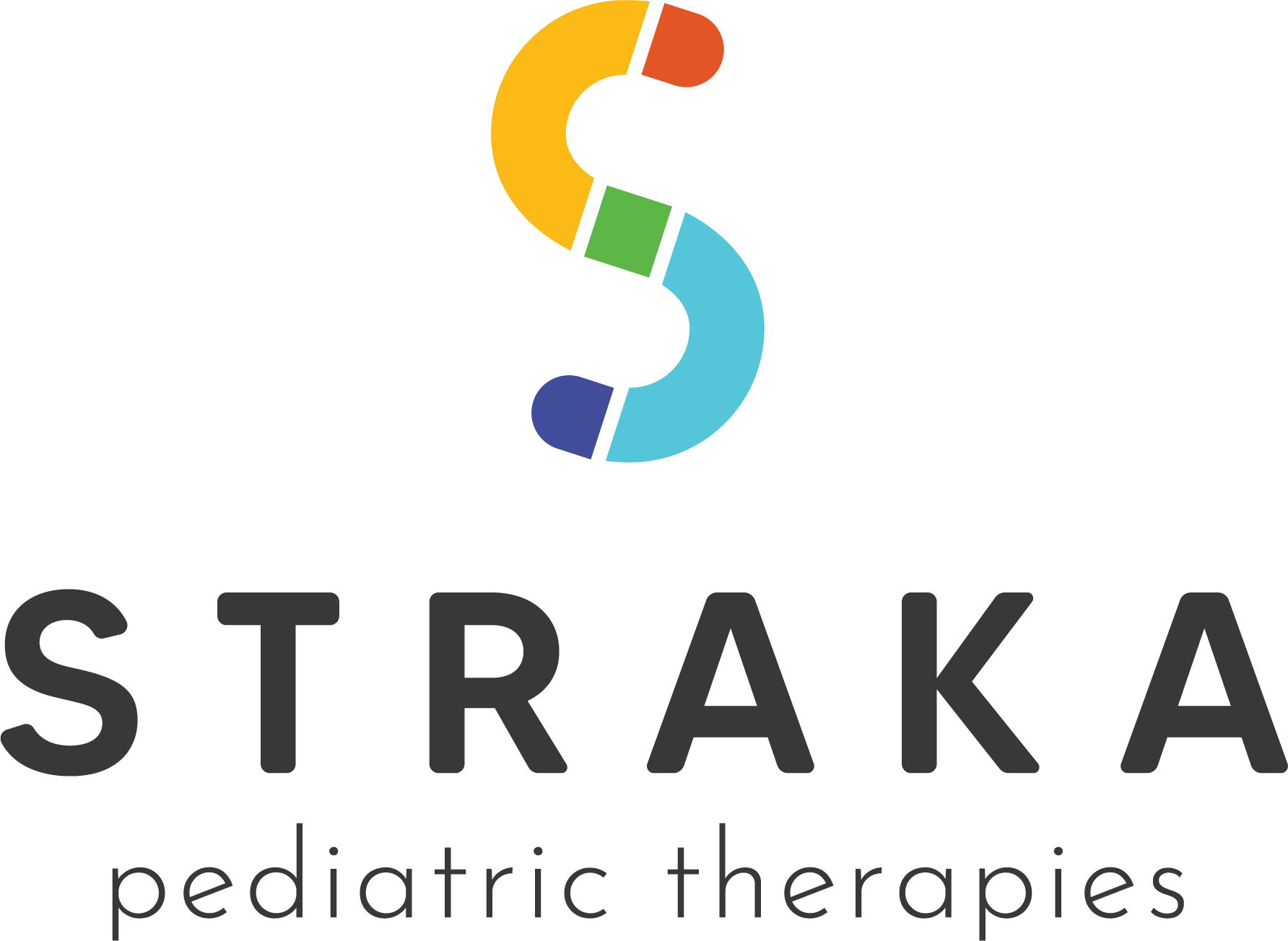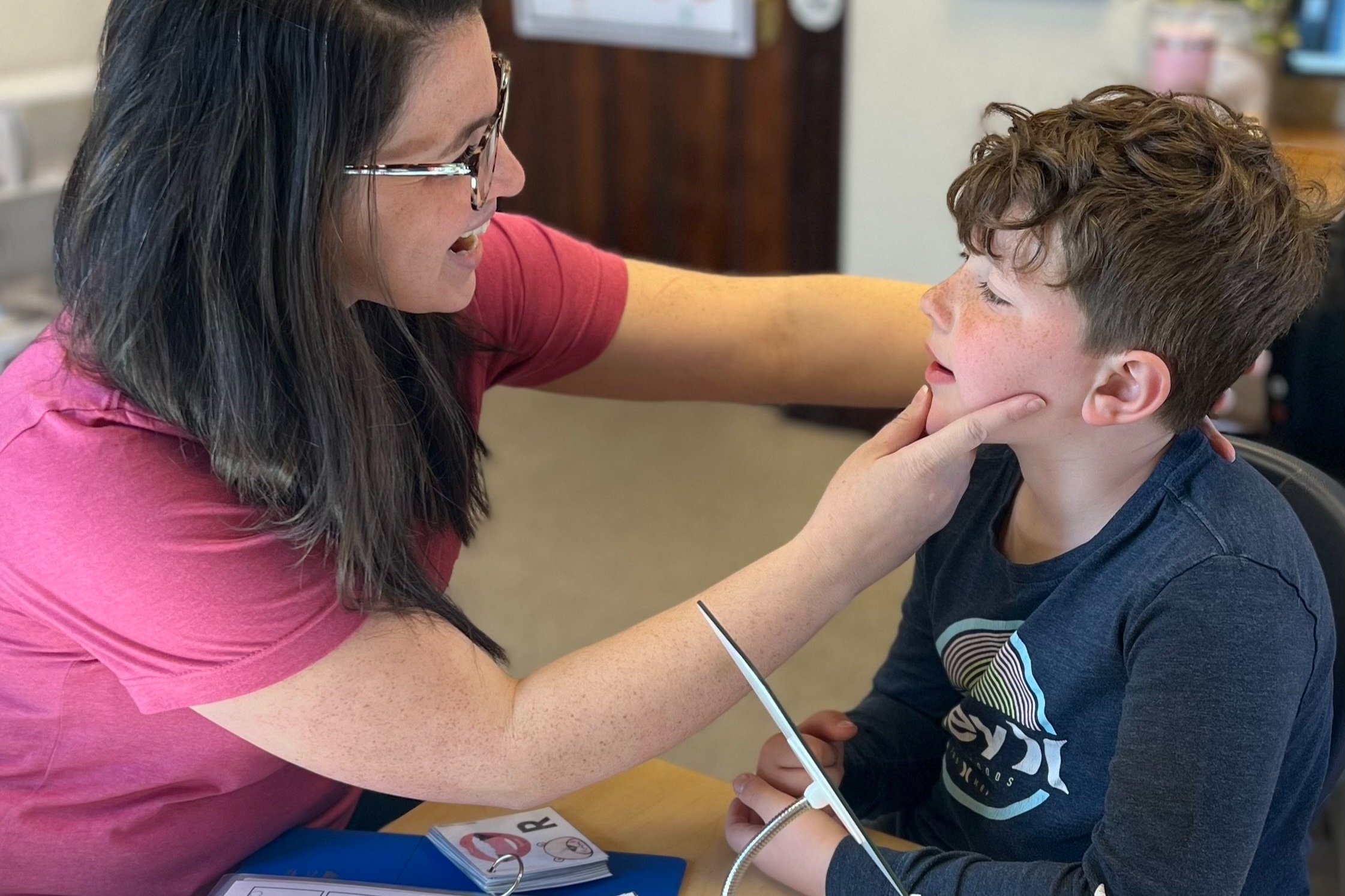
Therapies Offered
Speech and Language Therapy
Articulation and Speech Disorders: Straka Pediatric Therapies treats articulation and speech disorders including the way an individual pronounces words, sentences or specific speech sounds. Visit the American Speech-Language Hearing Association website for more information.
Augmentative and Alternative Communication: Straka Pediatric Therapies provides support to children in learning to use and manage augmentative and alternative communication (AAC) devices to facilitate simple and complex communication needs.
Autism Spectrum Disorder: Straka Pediatric Therapies provides treatment for all aspects of language difficulties for children and adults with autism spectrum disorder, from pre-linguistic joint attention skills to difficulty with figurative language. For more information, visit the Autism Society website.
Cleft Lip and Palate: Straka Pediatric Therapies treats speech difficulties resulting from cleft lip and palate including resonance, nasality and specific speech sound difficulties.
Developmental Delays: Straka Pediatric Therapies wants children to reach their full potential, helping them grow in areas they may be behind.
Feeding Disorders: A feeding problem affects a child’s ability to eat or drink in a developmentally appropriate and safe way. For more information, visit the American Speech-Language Hearing Association website or the American Occupational Therapy Association website.
Hearing Impairments: Straka Pediatric Therapies treats a variety of hearing impairments. It is especially important to diagnose and treat a hearing impairment in children as early as possible to limit potential impact on learning and development. For more, visit the American Speech-Language Hearing Association website.
Language Disorders: Straka Pediatric Therapies helps children and adults who have trouble with grammar, sentence structure, vocabulary and word finding skills as well as difficulty processing language and information. For more, visit the American Speech-Language Hearing Association website.
Motor Speech Disorders: Straka Pediatric Therapies addresses concerns with an individual’s ability to coordinate the fine motor movements required for speech to sound intelligible, sometimes referred to as apraxia of speech. For more information on apraxia, visit the Childhood Apraxia of Speech Association website.
Social Language Disorders: Straka Pediatric Therapies treats concerns with a person’s ability to communicate and relate to peers including social rules, conversation skills, problem solving and activities of daily living.
Stuttering: Straka Pediatric Therapies treats stuttering in children and adults. Stuttering affects fluency of speech and is characterized by “bumps” or “blocks” in the production of speech sounds and can lead to communication difficulties. For more information, visit the Stuttering Foundation of America website.
Voice Disorders: Straka Pediatric Therapies treats pediatric voice disorders and vocal cord dysfunction. Voice disorders concern the quality, volume and resonance of a patient’s voice.
Occupational Therapy
Straka Pediatric Therapies provides services to help children develop underlying skills essential for learning and performing specific tasks, as well as addresses social and behavioral skills. Occupational therapy assists with a child’s overall self-concept and confidence, by helping children develop basic sensory awareness and motor skills needed for motor development, learning and healthy behavior. These include the following:
Body awareness (proprioceptive sense)
Coordination of movements between the two sides of the body (“crossing midline”)
Fine motor control and organization
Motor planning
Motor movements and coordination
Gross motor coordination
Visual perceptual skills
Self-regulation
Sensory modulation (reaction to stimulus)
Functional outcomes of occupational therapy can include development in cognitive, physical, sensory, and motor skills, improved core strength, increased independence in activities of daily living and overall enhancement of self-esteem.


